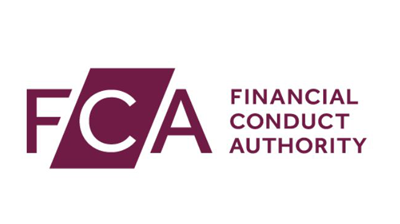
The Financial Conduct Authority (FCA) is set to ignore advice from politicians and business groups and has said it plans to push ahead with proposals to “name and shame” companies under investigation, despite warnings that this could disrupt financial markets and damage business reputations needlessly.
In February the FCA published a consultation document outlining changes to its enforcement regime. Crucially, the regulator is seeking powers to publish information about companies under investigation before a decision has been finalised as to whether or not the company concerned has a case to answer.
Currently the FCA only publishes details of companies after any enforcement action has been agreed, along with information about any sanctions, prohibitions and requirements, such as to pay redress.
In future, the FCA says it wants “the right to proactively publish more information about our enforcement investigations including their opening and progress. This includes publishing the identity of the subject of the investigation, if we assess that it is in the public interest to do so and if there are no compelling legal or other reasons not to.”
“It will also include publishing updates on our investigations and announcing that we have closed cases where our investigations have not led to regulatory or other action,” according to the consultation.
Risk to market integrity
The House of Lords' Financial Services Regulation Committee has warned the FCA in a letter that such publicity “risks the overall integrity of the market”. Peers said the regulator had sought to justify the move on the grounds of deterrence, as well as offering greater transparency and accountability, but argued the proposal risks having a disproportionate effect on firms named in investigations, where those firms are subsequently cleared of any wrongdoing, particularly given the length of many investigations.
These concerns have been echoed by Miles Celic, CEO of TheCityUK, who told the FT that the financial services industry is opposed to the FCA naming and shaming firms before any investigation is complete.
“This contradicts the fundamental legal principle of ‘innocent until proven guilty’ and risks undermining trust and confidence in the wider industry and the UK’s competitiveness.
“It would significantly and pointlessly damage a firm’s reputation and value, especially given that FCA investigations take four years on average and many conclude without requiring any action,” Celic said.
Pace and focus
Now the FCA has responded to the House of Lords committee’s concerns stating that “….our current refusal to disclose the existence of an investigation other than in exceptional circumstances can impede parliamentarians’ ability to help their constituents and hold us to account, can stop whistleblowers coming forward and can hamper efforts to protect consumers from further harm.”
The FCA said its proposals should be viewed in the context of its ambition to increase the “pace and focus” of its investigations, and that it was committed to reducing the timelines for delivery of any outcome.
The regulator also argues that “there were instances in the past where earlier publication would have enhanced our response, and the market's reaction. For example, if we had been able to more overtly communicate the failings we identified with some firms on anti-money laundering controls, years before the regulatory outcomes in 2021, 2022, and 2023, other firms could have acted more quickly to resolve similar issues before they worsened.”
According to the FCA of the investigations into firms it opened in 2021 to 2024 inclusive, it has identified seven instances where there was a firm disclosure of the fact of the investigation(s), directly or indirectly, to the UK market.
Of these, in two cases the relevant shares were suspended at the time of the announcement, so there was no impact on share price.
Of the remaining five, on the day of all but one of those announcements, the relevant firm’s share price did not move negatively by more than 1%.
The one exception was Vanquis Banking Group (VBG) (then called Provident Financial) whose share price dropped 27.7% on 15 March 2021. The FCA said this was more related to its announcement about redress payments affecting the solvency of its consumer credit division and media commentary than any announcements relating to FCA activity.
The regulator also argued that it has seen no public statements by firms, including VBG, that its investigation caused them a material permanent commercial impact, for example through net loss of clients not returning following closure of the investigation.
Edward Peck, CEO of AFC, said: “The fact that the FCA is planning to go ahead with enforcement changes that both politicians and business groups oppose shows how little the regulator listens to the markets and those who know how they operate. We have already seen the FCA motor finance review – which was supposed to ensure an orderly approach to tackling discretionary commission issues – has resulted in household name lenders being forced to set aside millions of pounds for potential compensation payments, even though no wrongdoing has yet been identified. That directly impact the funders’ ability to lend and innovate in a way that will provide the support the UK economy so desperately needs.”
AFC’s UK summer conference on 6th June at etc venues, County Hall, London features a dedicated stream examining current regulatory challenges. For more details, visit the event website at https://afcconferenceuk.com/assetfinanceconnect2024/en/page/home









